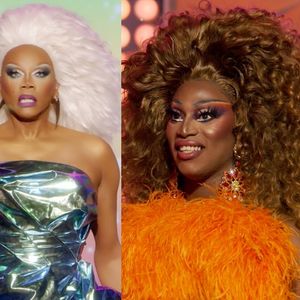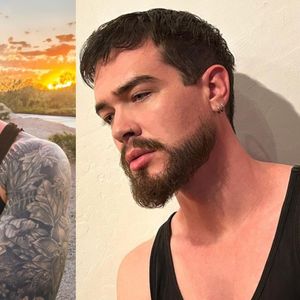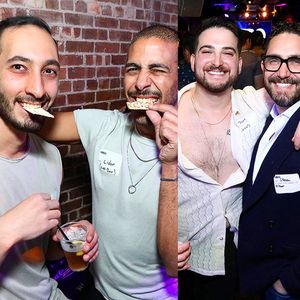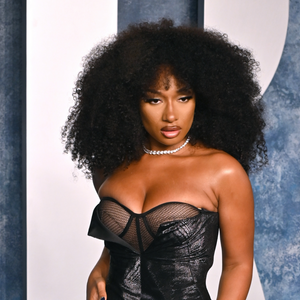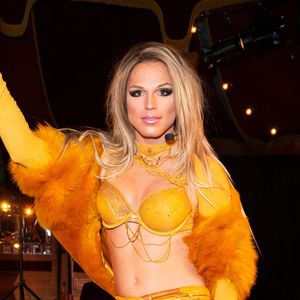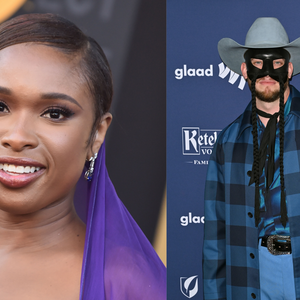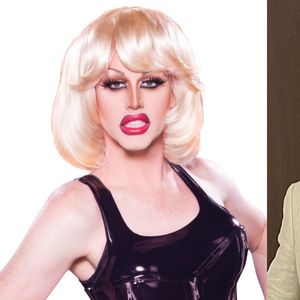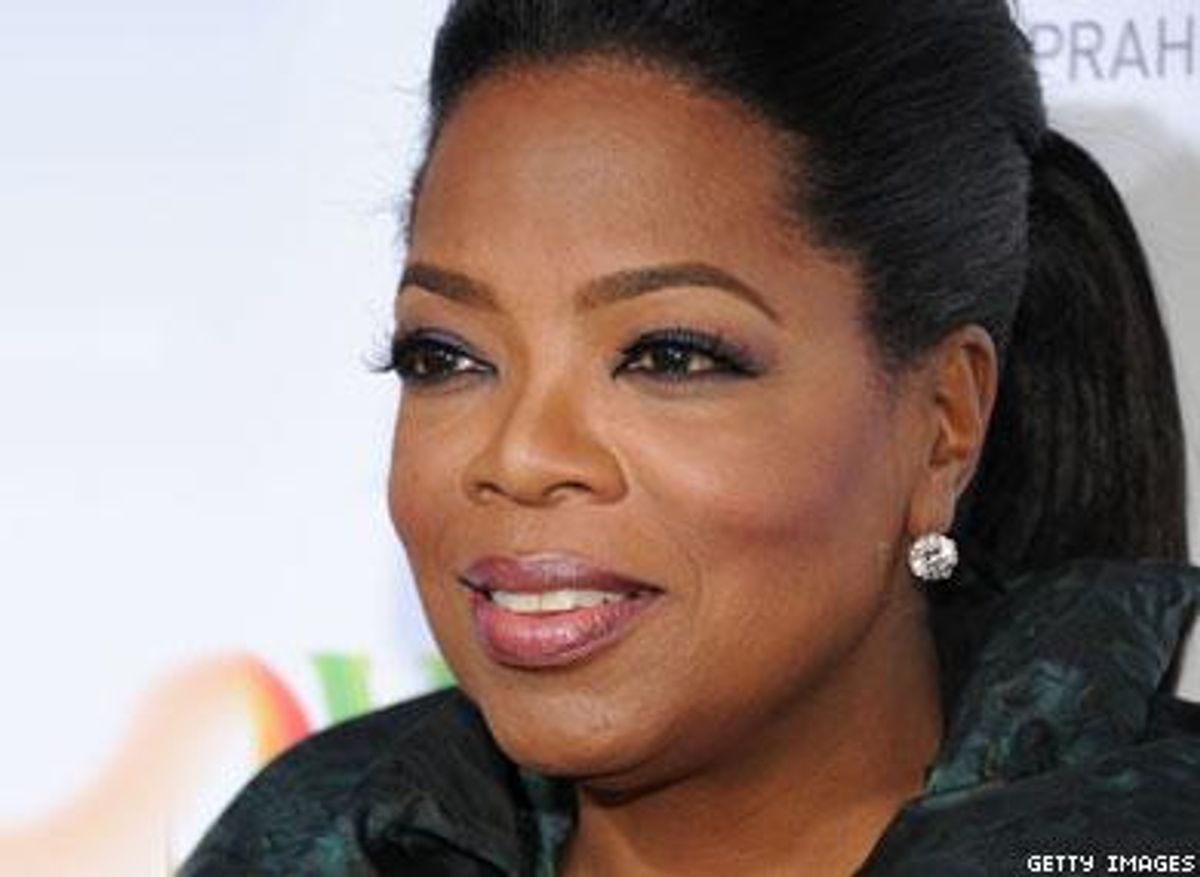
CONTACTStaffCAREER OPPORTUNITIESADVERTISE WITH USPRIVACY POLICYPRIVACY PREFERENCESTERMS OF USELEGAL NOTICE
© 2024 Pride Publishing Inc.
All Rights reserved
All Rights reserved
By continuing to use our site, you agree to our Private Policy and Terms of Use.
The new year is turning into the Year of Oprah. After 25 years, Oprah is ending her acclaimed talk show this spring with much fanfare. If that were not enough, a publicity wave announced this month's launch of her OWN television network -- which aspires to more thoughtful television. Oprah calls herself a teacher. I count myself as one of her longtime students and someone who would love to follow in even a few of her big media footsteps. Perhaps because it is the farewell season, I recently found myself watching Oprah's talk show even more and gleaning sage advice from it. Oprah's genius is that her messages carry meaning not just for her predominantly female audience but for everyone. That includes me and the rest of the LGBT community. In honor of this Year of Oprah, here are some important life lessons that I've learned from Oprah.
Lesson #1. Don't dim your light for a man.
This smart ditty came from an interview with tennis champion Serena Williams. Oprah asked how hard it must be for a powerhouse woman to date, and shrewdly told Serena, "Don't dim your light for a man." This message was tailor-made for Oprah's "girl power" audience, but it really registered with me. (Please hold all the gay "You go, girl" lines.)
I'm no Serena Williams, but I'm a strong person in my own right (an ex-boyfriend called me "a force of nature"). In the past I've found myself restraining my personality for a man. In the thick of a relationship, it seems like a good idea to keep your partner happy and your life tennis match at love. But it will eventually lead to double-faulting yourself away. Naturally, relationships require many ingredients for success. Compromise, patience, and addressing your partner's feelings are some of them. Squelching who you are inside is not.
This is true for all lovebirds, same-sex or opposite. But I wonder if this Oprah-ism is especially relevant to gay male relationships. After all, two men equal two male egos to clash. Maybe it's just my perception, but can egos of gay men be especially fragile? Perhaps that's because we carry added insecurities born from childhoods spent hiding who we are and feeling unaccepted. Even with adult years spent overcompensating to succeed, gay men still harbor the self-doubts of youth, which can make some of us feel easily threatened. If you are a bold gay man with a partner who feels uneasy about your strength, the clash can lead you to follow the path of least resistance: Dim yourself to keep your man happy.
Take it from me, don't do it! A relationship will succeed only if both partners reveal, accept, and live their authentic selves. No matter whom you call your boyfriend, partner, or husband, embrace your full self -- with all your intelligence, personality, flaws, and virtues. Be a force of nature if that's who you are. Above all, don't dim your light for a man. (For all the woman-lovers out there, don't dim your light for a woman either.)
Lesson #2: You are enough.
Oprah has told many interview guests, "You are enough." This advice rings especially loud for gay men. Let's face it: Gay men (probably more than lesbians) spend undue amounts of time trying to outdo each other. We religiously pump iron in the quest for physical perfection, to the point of driving some already attractive men to steroid use and body dysmorphia. We like to rock trendy clothes and a swanky car. We aspire to career success, money, power, or fame -- or all of the above. And we want to be popular. It may be overgeneralizing, but enough gay men fit this mold that it makes me feel like our community is high school redux.
Much like in high school, our feelings and behavior are often driven by insecurity. (There's that word again.) When working out at your local gay gym, it's easy to feel you don't measure up to other men (especially at my West Hollywood gym, filled with actors, fitness models, and Fabio). When cocktailing at the trendy gay bar of your city, it's easy to get lost in the crowd and think you are not enough. As individuals and as a community, we need to break through this emotional wall and just accept ourselves.
There's nothing wrong with self-improvement; by all means, strive for your best self. But do it for you. Don't do it out of fear or just the need to please other people. Of all Oprah's axioms, this is the one I am most still working to embrace in my own life. Thanks, Oprah, for reminding me that I am enough, just the way I am.
Lesson #3: Nobody can complete you; you complete yourself.
After you realize, with lesson #2, that you are enough, know that nobody can complete you but you. It's a direct rebuttal to the infamous "You complete me" line from the film Jerry Maguire. According to Oprah, the "You complete me" sentiment has brainwashed women for years into believing that they need a man to feel whole. Oprah disagreed during a recent interview with Jenny McCarthy, who was discussing her breakup with Jim Carrey. (Who knew a former Playboy Playmate could inspire spiritual profundity?)
LGBTs of the world, take note: You don't need another person to complete you. It's easy to buy into a vision of finding the perfect partner and the perfect home, with the perfect domesticated animal of your choice. But those things cannot make you whole. Gay men and lesbians have difficult formative years, making it even more vital that we heal ourselves through our own inner work.
After two back-to-back long-term relationships, 2010 was the first full year I've been single in a decade. Rather than rushing out to find another boyfriend, I took the past year to focus on what I need. With some age, experience, and a busier calendar than ever, I learned that I don't need a partner to feel whole.
I'm not advocating eternal singlehood. Indeed, relationships can be the catalyst pushing you to confront yourself. But think of a partner as someone who complements rather than completes you.
Beyond our romantic relationships, this lesson is equally applicable to social friends. In our constant quest to make up for adolescent alienation, gay men can fall prey to surrounding ourselves with acquaintances who we think complete us. You know what I'm talking about -- that pull to socialize with the most attractive guys in town, successful A-listers, and if you're truly lucky, a real-life "homo-lebrity." Befriend those folk if they are truly buddy material, but not to validate yourself by being in their orbit.
The best people, romantic partners or good friends, help us nurture our better selves. But no person can complete you. That is your life's work. And that is what Oprah would want you to realize.
Lesson #4: You don't need a lover to have love in your life.
This mantra comes from the same interview with Jenny McCarthy that spawned lesson #3. But these words came from McCarthy herself. In the throes of her breakup with Jim Carrey, Jenny emphasized that love comes from many sources, not just from a lover.
How true this is for the LGBT community. Until recent history, same-sex relationships lacked formal recognition, and parenting by same-sex couples was not common. Consequently, gay men and lesbians are good at creating our own versions of family -- filled with not just lovers, but also with friends and relatives. For those alienated from their immediate families because of their sexual orientation, finding support from gay friends is vital. Despite its often superficial nature, the gay community constantly impresses me with its power to circle its members with love.
I have often wondered whether gays and lesbians have a greater appreciation than straight people for those who love us. Our gay friends already share a strong bond with us; our straight relatives and friends must be open-minded enough to accept us unconditionally. Either way, we should deeply value the love in our lives from all sources.
Lesson #5. Live your best life.
Not just a message from any single episode, this is Oprah's ultimate brand and mission. It tells Oprah fans to improve themselves and their life.
I interpret the mantra somewhat differently for the LGBT audience: Live your best life with all the rights available in this extraordinary time. While there is much more to be accomplished in our community's quest for full acceptance, we have come far in securing legal recognition and building tolerance.
Take advantage of the panoply of hard-won rights now offered in many states. Claim domestic-partner health benefits. Object if you are the victim of discrimination in housing or employment. If it's right for your life and available in your state, register as domestic partners or get married. Adopt or give birth to children if your heart tells you to parent. And soon you can enlist in the U.S. military if you choose to serve our country.
Our gay forefathers and foremothers did not have these choices. Appreciate these options and use them to live your best life. In doing so, you will pave the way for the LGBT community to win more legal rights for the generations to follow.
This isn't exactly what Oprah has in mind when she proclaims "Live your best life." But in the vein of her mission to teach people how they can better the world, I'm sure it's a lesson Oprah would want you to learn.
Want more breaking equality news & trending entertainment stories?
Check out our NEW 24/7 streaming service: the Advocate Channel!
Download the Advocate Channel App for your mobile phone and your favorite streaming device!
From our Sponsors
Most Popular
Here Are Our 2024 Election Predictions. Will They Come True?
November 07 2023 1:46 PM
Meet all 37 of the queer women in this season's WNBA
April 17 2024 11:24 AM
17 Celebs Who Are Out & Proud of Their Trans & Nonbinary Kids
November 30 2023 10:41 AM
Here Are the 15 Most LGBTQ-Friendly Cities in the U.S.
November 01 2023 5:09 PM
Which State Is the Queerest? These Are the States With the Most LGBTQ+ People
December 11 2023 10:00 AM
These 27 Senate Hearing Room Gay Sex Jokes Are Truly Exquisite
December 17 2023 3:33 PM
10 Cheeky and Homoerotic Photos From Bob Mizer's Nude Films
November 18 2023 10:05 PM
42 Flaming Hot Photos From 2024's Australian Firefighters Calendar
November 10 2023 6:08 PM
These Are the 5 States With the Smallest Percentage of LGBTQ+ People
December 13 2023 9:15 AM
Here are the 15 gayest travel destinations in the world: report
March 26 2024 9:23 AM
Watch Now: Advocate Channel
Trending Stories & News
For more news and videos on advocatechannel.com, click here.
Trending Stories & News
For more news and videos on advocatechannel.com, click here.
Latest Stories
Biden will hammer Trump over abortion bans in Florida speech
April 23 2024 5:00 AM
Tristan Snell, who brought down Trump University, sees conviction in hush money case
April 22 2024 7:36 PM
Joe Biden admin marks Earth Day with major environmental initiatives
April 22 2024 4:18 PM
Texas Gov. Greg Abbott: 'We want to end' trans and gender nonconforming teachers
April 22 2024 4:13 PM
Nonbinary 17-year-old killed two years after being reported missing
April 22 2024 3:46 PM

Pride
Yahoo FeedIndulge in luxury and sensuality with The Pride Store’s Taurus gift guide
April 22 2024 11:46 AM
The gay man leading the Earth Day Initiative offers hope for the future
April 22 2024 9:00 AM
Pattie Gonia takes drag and fierceness to Capitol Hill to voice environmental concerns
April 22 2024 8:23 AM
Jodie Foster leaves her mark in cement at L.A.'s Chinese Theatre
April 22 2024 7:55 AM
Climate change has a bigger impact on LGBTQ+ couples than straight couples. Here's how
April 22 2024 7:42 AM
Iraq postpones vote on bill punishing gay sex with death
April 20 2024 1:31 PM
Russian poetry contest bans entries from transgender poets
April 20 2024 1:25 PM
Here's who won 'RuPaul's Drag Race' season 16
April 20 2024 1:01 PM






























































